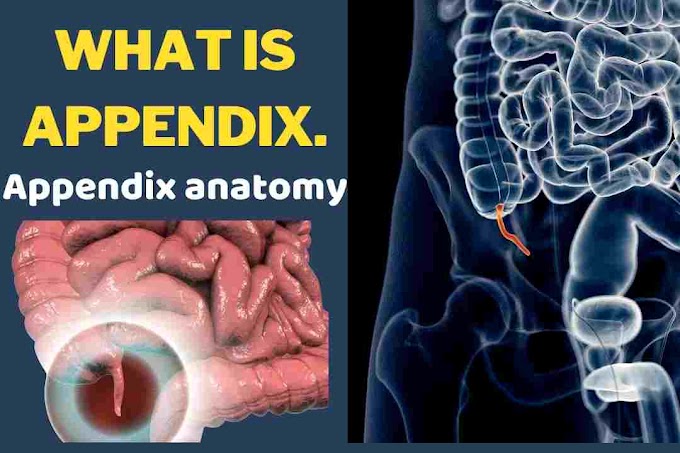If you have ever had kidney stones before you may worry about getting them again what causes kidney stones how long does it take to pass a kidney stone and how do you get rid of them. Today I will answer all of your burning questions on kidney stones.
Intro
I’ll dive into the cause’s symptoms and five ultimate
ways to prevent kidney stones what are kidney stones and who gets them.
Kidney stones are also called urinary stone disease and
medical lingo. they are hard stones that form inside the kidney in the tube
draining urine from the kidney the ureter or in the bladder, they are quite
common affecting one or two people out of a thousand every year kidney stones
are roughly twice as common in men as in women in males stones tend to happen
between the ages of 40 to 60yearsand in females don't start in their late20sand
if you have ever had a kidney stone you have a one and three chance of getting
another stone within the next five years what the hell causes kidney
stones waste products that are in the urine can form tiny crystals that clump
together over time to make small stone stones are much more likely to happen in
chronically dehydrated people.
This makes the urine more concentrated so those working
or living in hot conditions also in people who have problems with their
plumbing structure so a scarred kidney or urinary tract stones tend to run in
families are more likely if you have repeat kidney or urine infections suffer
from gout obesity or take water tablets like diuretics.
What foods and drinks cause kidney stones?
So stones are made with different ingredients. most
commonly they calcium in the form of calcium oxalate but they also come as
calcium phosphate or even have bacteria in them called infection stones where
am I going with this all these ingredients tend to come from your diet and lots
of studies have been done on different diets to reduce your chances of getting
future stones.
the latest evidence suggests that having a moderate
intake of calcium and reducing salt is more effective than reducing oxalate in
your diet I will be talking more about this in detail coming up so don't worry
if you have very high amounts of oxalate in your urine you may need to limit
some oxalate-rich foods like spinach silverbeet and rhubarb.
What are the symptoms of kidney stones?
You may have heard that kidney stone pain is similar to
the pain of having a baby or like having a knife stuck in your back being
twisted all around something akin to this well it's probably not far wrong. Renal
colic is the medical term and it starts with sudden onset pain in your flank
that is extremely severe and may make you feel sweaty or vomit. There always a
background of pain with severe spasms over the top and it tends to track
downwards into your groin as the stone passes through also you may notice blood
in the urine. Most people cannot tolerate the intensity of the pain and usually
seek help at the hospital.
How long does it take to pass a kidney stone?
This depends on the size and location of your stone.
eighty percent of smaller stones that are less than four millimeters will pass
by themselves after about 31days. Sixty percent of bigger stones that are
between four to six millimeters will pass after 45 days. However, some of these
will need treatment; most stones larger than six millimeters will require
intervention to move them along also remember there are two bottlenecks when it
comes to passing stones. One is just after the kidney and the other is just
before the bladder. You often know where the stone is based on where you are
feeling the pain if it's down in the groin it's very close to the bladder which
will grind up the stone quite nicely.
Are there tests for kidney stones?
if you have kidney stones the standard tests that will be
done in the hospital are a urine test to check for infection and crystals. A
blood test to measure if the kidneys are working properly and look at the
levels of your calcium and uric acid in the blood from there it's standard to
have either an x-ray or CT scan. CT scans have a higher pick-up rate of stones
because some stones cannot be detected on an x-ray.
What are the treatments for kidney stones?
Okay, let's be honest in the crisis moment of pain you
will need painkillers? oh, this is hitting me, my insides feel like velvet
depending on your other health conditions and medications the emergency doctors
are likely to give you diclofenac 75 to 100 milligrams of morphine plus some iv
fluids. If you are vomiting or dehydrated the next treatment steps are really
important in trying to either break up the stones or pass them.
So firstly if the stone is small enough medicine called
doxazosin is started two milligrams. Each night this medication helps open up
the ureter so that the stone can pass more easily. It will need to be taken for
four to six weeks until the stone passes. If the stone is too big there are
four treatment options the doctors may use
A lithotripsy is a shockwave machine that breaks up the
stones into smaller pieces So that you can pass them naturally. Three types of
surgeries are done while you're asleep sounder a general anesthetic these are
called ureteroscopy, percutaneous,
nephrolithotomy or open surgery drsam what can I do at home to get rid of them
and prevent them from coming back love to leave the most important bits to
last.
Okay if you're still with me there are some very
important things you should do at home here are
Five tips
1) drink lots of the water you need to dilute your urine to stop stones from coming back drink at
least 10 to 12 cups of fluid each day water is best but milk low sugar drinks
tea and coffee are also suitable may help to have about half a cup of lemon or
lime juice each day. This makes your urine less likely to form stones you can
add the juice to water plain or sparkling or freeze it in the ice cube trays
and add the frozen cubes to your favorite drink. Avoid cola drinks tomato
grapefruit and cranberry juices because these increase your risk of forming
stones, this does not go well.
2) Eat less salt,
Salt is sneaky because today it's virtually added to everything salt increases
the amount of calcium in your urine. This can cause stones to look for foods
labeled assault reduced. No added salt or low sodium you can also check food
labels for sodium content read the nutrition information panel on food labels
and choose food with less than milligrams of sodium per 100grams of food. I
mean it's one banana Michael what could it cost ten dollars, you've never
actually set foot in a supermarket have you I don't have time for that.
3) eat
calcium-rich foods but not supplements some types of calcium supplements may
cause stones but there's no proof that calcium-rich foods do in fact if you
don't eat enough calcium-rich foods you're more likely to form stones milk and
milk products such as cheese and yogurt are the best sources of calcium. I
don't have the milk of mother's kindness in me anymore; yeah that otter's been
dry for a while though.
4) Reduce your
meat too much. Animal protein from meat chicken fish and eggs will make your
urine more acidic and more likely to form stones so just eat one to two
servings a day that's about the size of your palm.
5) Avoid over high
doses of vitamin c supplements you can still take vitamin c supplements but
just have less than a thousand milligrams per day, as this increases the amount
of oxalate in your urine however, you can have as much vitamin can foods as you
want.
Please let me know in the comments what you enjoyed about
this information, or what you want to learn more about, and feel free to check
out some of my other articles on health.
Thanks for reading.





0 Comments
Please donot enter any spam link in comment box!